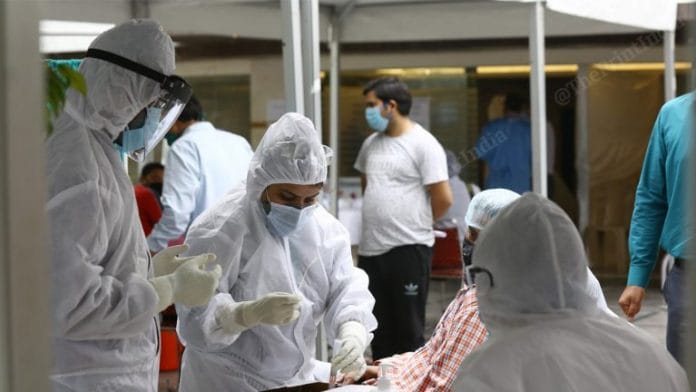New Delhi: Several Twitter users reported cases of an “unknown” pneumonia in the winter of 2019 even before the World Health Organization (WHO) declared the first Covid-19 case, a study has found.
The study, which analysed data from Twitter, found that “unexpected levels of concern” was shown about cases of pneumonia across many European countries in the late months of 2019 and early months of 2020.
Conducted by researchers at IMT School for Advanced Studies at Lucca, Italy, the study was published in the journal Nature on 25 January. It found that this “whistleblowing” came from geographical regions that later turned out to be “breeding grounds” for the pandemic.
The study
On 31 December 2019, the WHO informed the world about the first few “cases of pneumonia of unknown etiology”. Researchers, therefore, relied on pneumonia in order to detect early-signals of the pandemic.
They created a database that included messages containing the word ‘pneumonia’ in seven languages — English, German, French, Italian, Spanish, Polish and Dutch.
The initial dataset contained tweets from the winter of 2019 to 2020 and 2018 to 2019. This included 5,73,298 unique users and 8,91,195 unique tweets.
Following this, they extracted a sample including tweets concerned with pneumonia posted between 15 December 2018 and 21 January 2019, and the period between 15 December 2019 and 21 January 2020.
With the exception of Germany, it was found that the many mentions of pneumonia “unmask unexpected statistically significant variations in public interest”.
In Italy, for instance, the lockdown measures were first introduced on 22 February 2020. However, the rate of increase in mentions of pneumonia in 2020 “substantially differed” from the mentions in 2019. The study infers that the “potentially hidden hotspots” were identified several weeks before the first local case of Covid-19 was announced in the country.
Also read: Traveller quarantines aren’t going away soon, can’t rely on vaccines or immunity passports
‘Leverage social media’
The study suggests that social media can be leveraged by governments, policymakers and local authorities to obtain ‘contextual geo-localised information” in real-time, which can then be used to devise intervention policies.
Social media can be helpful to public health authorities as it can help them detect chains of infection that otherwise hold the threat of proliferating for weeks without detection, the study states.
“These findings point to the urgency of setting up an integrated digital surveillance system in which social media can help geo-localise chains of contagion that would otherwise proliferate almost completely undetected,” the study adds.
It maintains that social media “holds promise” for enhancing effectiveness of public health surveillance.
Also read: Nearly 255 million jobs lost due to Covid globally, signs of economic recovery fragile — ILO






